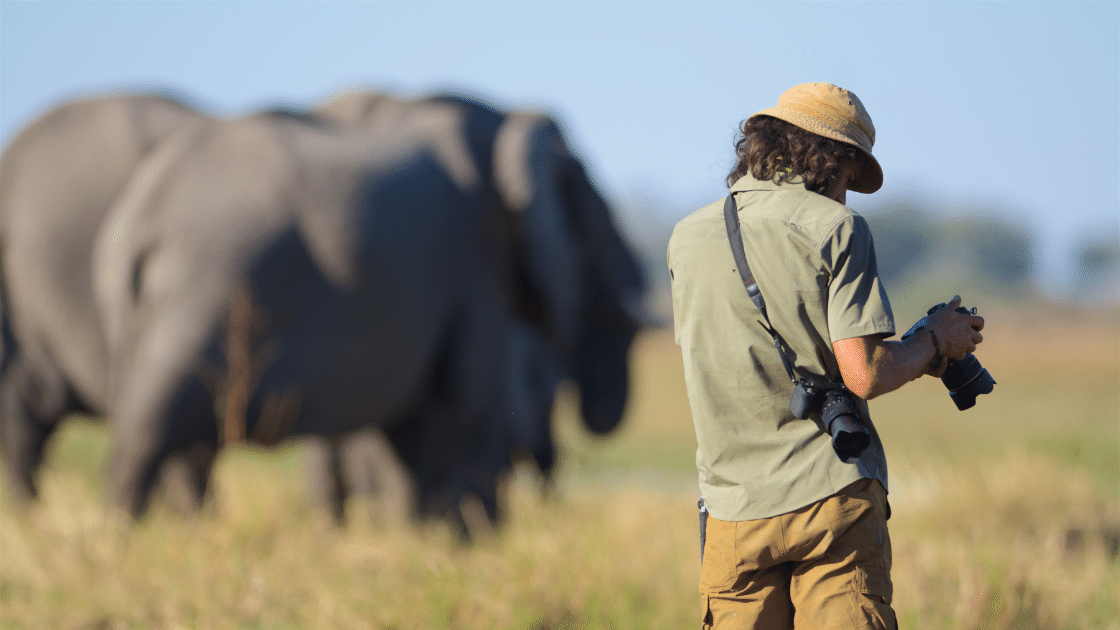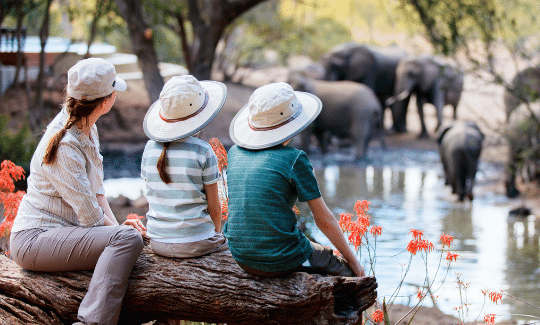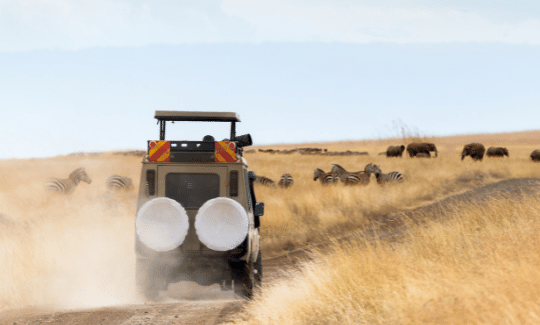13 Biggest Mistakes To Avoid When On A Safari
One of my teenage aspirations was to become a safari guide.
After spending a month volunteering with a research team in the incredible Phinda Game Reserve in KwaZulu-Natal, South Africa, my mind was set.
I came back the next year, went through two months of training in two different reserves in the north of the country and earned my certification as a field guide.
Through one thing and another, my dream of actually working as a field guide never became a reality, but I certainly learned more than a few life lessons along the way, along with some of the most amazing memories of my life!
So, from my old study notes and personal experiences, here are the 13 biggest mistakes you should avoid when on safari!
Don’t wear perfume
Before leaving for your morning or afternoon drive, avoid using any strong deodorant or perfume.
Strong and unusual smells are more likely to make the animals nervous, which reduces your chances of spotting them.
In rare worst case scenarios, it can even make them more aggressive.
With that said, for the sake of the people around you, also don’t go on your drive smelly and unwashed!
No smoking
For the same reason as perfumes and deodorants, don’t smoke while on safari!
Not only does it bother the animals, it probably won’t be much appreciated by the guide, the tracker and the rest of the guests.
The same goes for electronic cigarettes, take your puffs before going and leave it in your room.
It also goes without saying that cigarette butts are an extreme fire hazard, especially in the dry conditions of the savanna.
Don’t bring any food
Make sure you have a good breakfast or lunch before going on a safari, because eating in the car is a big no no!
On some safaris you will stop in certain areas where the guide and staff will have a meal and drinks prepared for you, but those places are chosen beforehand so that neither you or the animals are at risk.
The idea is to avoid having the animals associate the visitors and the vehicle with food.
While a lion won’t jump in the vehicle for a candy bar, a baboon just might, especially if it has been fed before. Personally, I would pick the lion…
Do not feed the animals
Again to stop them from associating you and the car with an easy meal, never ever feed the animals!
Not only will this put you and future visitors at risk, it might eventually get the animal killed.
Animals that become used to human feeding are a huge risk to safari park management, and sadly they are often put down.
Don’t leave trash behind
This rule applies everywhere, and safaris are not an exception.
Maintaining a game reserve is a costly and very expensive business, so do your part to at least keep it clean.
Any trash you might have with you when out on safari needs to come back with you!
No flash photography
Safaris are about observing wild animals in their natural environment, and that needs to be done quietly and without attracting their attention.
The animals are used to the shapes of the vehicles and the normal sounds that come from them, such as the engine and low voices, so anything that breaks that pattern can cause issues.
Flash photography can easily startle the animals and cause them to flee or, in the case of buffalo, rhino and elephants, cause them to charge at the car, putting everyone in danger.
Many of the animals you will encounter on a safari have eyes that are much more sensitive to bright lights than a human’s. A sudden bright flash of light may temporarily blind them and, especially for herbivores, make them easy prey.
Don’t call the animals
When sighting any animal, even the most common antelope, observe it while remaining quiet. Remember that you’re not in a zoo, and the animals only recognise the vehicle, not people.
Calling them will only be a disturbance, and the most likely result is that they’ll move off somewhere else.
Never scream and don’t make fast movements
Safaris can get intense, and I can tell you I have been in a few situations that got my heart racing.
No matter how bad a situation gets, always keep your cool and never scream. If an agitated animal charges the vehicle, trust your guide to get you out, that is what they are trained for.
This goes especially for families with children. If things start getting a little scary, try to keep them as calm as possible.
While staying quiet and calm, also try to avoid any fast movements that might put the animals in defensive mode. Sudden movements, such as quickly standing up from your seat, can break up the silhouette of the car that the animals are used to. The unexpected change can cause them to react, sometimes aggressively.
Don’t wear flashy colours
As I mentioned before, the reason the animals don’t really react to the vehicles is because they are used to them and know that they don’t pose a threat.
Anything that unnecessarily attract their attention towards what is in the car (AKA you) needs to be avoided.
Wear neutral colours, such as dark green, khaki, brown and beige, while avoiding flashy ones such as bright red and pink. Blue and black are also best avoided in areas where tze-tze flies are common, as they are attracted to those colours.
Don’t ignore your guide
Always trust that your guide knows what he or she is doing and that if they tell you to do something it’s for your own good.
After all, safari guides go through lengthy training for a reason, and are experts in dealing with the African wilderness. Also listen to you guide when observing the animals, as you’ll otherwise miss out on interesting info and facts!
Never leave the vehicle without permission
This might sound obvious to you, but you’d be surprised how many people leave logic at the door when seeing an exotic animal for the first time or when a good photo opportunity shows up.
So, no matter what happens, never ever leave the car without your guide telling you to do so, even if you think that there is no risk. There may be animals around the vehicle that you will not see until you’re almost on top of them, such as leopards hiding in the bush or snakes on the side of the path.
Don’t lean out of the vehicle
From the moment the car leaves the resort to the moment you come back, your behind needs to be glued to the seat and your arms and legs inside the vehicle at all times.
You’ll be going through some very rough terrain with low hanging branches that can easily hit you in the face, and mean bushes that line the road with huge spines that are know to pierce even off-road tires. Getting your arm caught on these won’t be a lot of fun.
The ride will also be very bumpy, so staying seated is essential to avoiding injuries.
Don’t be rude to the guide and staff, and don’t forget to tip!
Field guiding is both a challenge and a passion, and a line of work that some people dedicate an entire lifetime to mastering. Field guides go through intense training and often work for little pay, so remember to show some kindness and appreciation for what they do.
Be mindful of what you ask and never make demands, such as which animals you want to see or where you want to go. Remember that you’re in a mostly uncontrolled natural environment, and that the animals don’t appear on command. Also keep in mind that your guides also have a boss and limits to what they are allowed to do.
Finally, thank both the guide, the tracker and the staff that has assisted you during your stay with a good tip!
A safari is one of the best ways to experience the African wilderness in a safe and up-close way, and to observe an environment and animals that are sadly slowly disappearing.
Many organisations and reserve owners dedicate part of their earnings to studying and preserving endangered species, as well as protecting them from poachers.
Be mindful of this when choosing where to spend your vacation, so that you can have the best positive impact on this fragile environment!
Did you enjoy this article?
Feel free to save or pin this image so that you can always look back on this blog post!













When it comes to experiencing the African nature up-close and personal, there is nothing better than a safari. That feeling of awe and wonder as you observe the continent’s fearsome wildlife in its natural environment is impossible to describe, and is something that needs to be experienced to be believed.